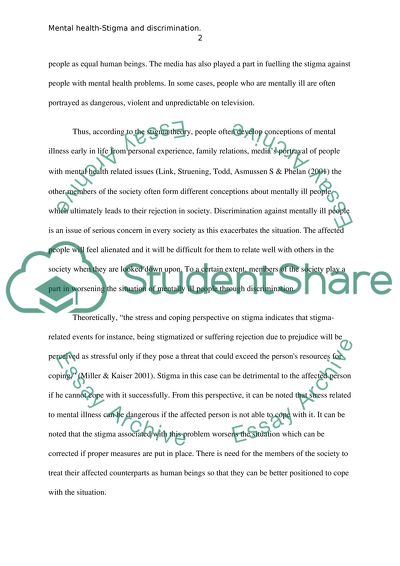Cite this document
(“Mental health - stigma and discrimination Essay”, n.d.)
Retrieved from https://studentshare.org/psychology/1408619-mental-health-stigma-and-discrimination
Retrieved from https://studentshare.org/psychology/1408619-mental-health-stigma-and-discrimination
(Mental Health - Stigma and Discrimination Essay)
https://studentshare.org/psychology/1408619-mental-health-stigma-and-discrimination.
https://studentshare.org/psychology/1408619-mental-health-stigma-and-discrimination.
“Mental Health - Stigma and Discrimination Essay”, n.d. https://studentshare.org/psychology/1408619-mental-health-stigma-and-discrimination.


